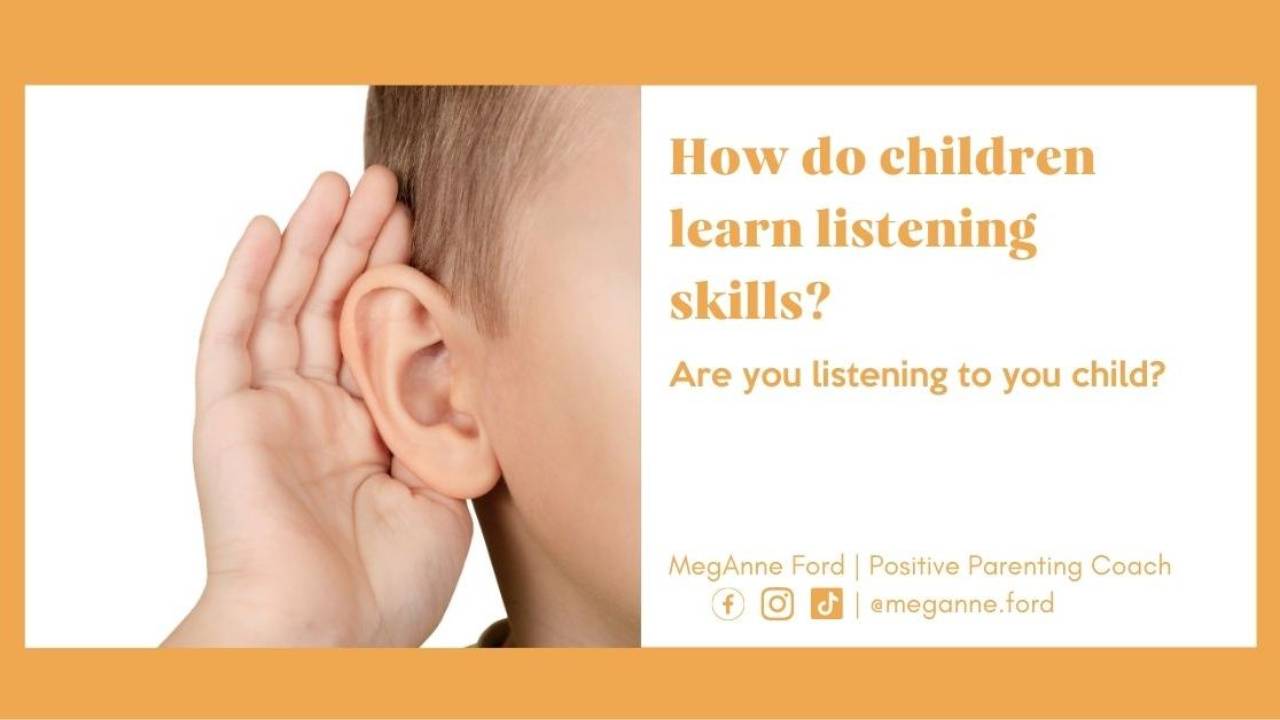
Roughhousing: A Guide for Parents | Be Kind Coaching
Mar 25, 2024
Teaching consent from an early age. Rolling around on the floor, tickling, and roughhousing might seem like chaos, but it turns out they offer substantial benefits to both children and adults.
Roughhousing fosters a strong bond between parents and children, but it also contributes to a child's healthy brain development.
There are numerous advantages of roughhousing. Beginning with when children engage in physical play, they learn valuable social skills such as cooperation, empathy, and communication.
Roughhousing also helps children build emotional intelligence and resilience, teaching them how to navigate conflicts and regulate emotions effectively.
But roughhousing isn't just great for kids; it also benefits adults. It enables parents to reconnect with their inner child, reducing stress, increasing happiness, and strengthening the parent-child relationship.
Moreover, studies have shown that roughhousing can boost brain development in children. By engaging in physical play, kids activate the prefrontal cortex, which is responsible for executive functions like problem-solving and decision-making.
What is Roughhousing?
Roughhousing is any type of physical play that often involves wrestling, tickling, chasing, and other playful forms of physical interaction.
The Importance of Play in Child Development:
Play is not just a fun pastime for children; it's essential for their overall development. Through play, children learn about the world around them, develop social skills, and explore their emotions. Roughhousing provides a unique platform for this exploration, offering a range of benefits that extend far beyond mere entertainment. Children learn best through play.
Seeing children engaged in rough play can concern some onlookers. It might look chaotic, and the natural instinct might be to intervene. But before you break it up, let's explore why roughhousing is actually a valuable learning experience for children of all genders.
Ever witnessed a tumble fest between two children, rolling all around, pinning each other to the ground?
Does your stomach start to churn, and you feel yourself compelled to break it up, probably lecturing about the "right way" to play?
Benefits of Roughhousing for Bonding:
-
Strengthens Parent-Child Relationship
- Roughhousing creates a space for shared laughter, joy, and connection. It fosters a sense of trust and security in children, knowing they can be silly and playful with their parents without judgment.
-
Boosts Communication
- Non-verbal communication is key during roughhousing. Children learn to read facial expressions, body language, and vocal cues to gauge their partner's emotions and adjust their play accordingly. This back-and-forth communication strengthens the parent-child bond and lays the foundation for healthy communication skills in all aspects of life.
-
Creates Lasting Memories:
- The giggles and shared experiences of roughhousing become cherished memories that strengthen the parent-child bond for years to come. These positive memories can serve as a buffer during challenging times in the future, reminding both parent and child of the love and connection they share.
Physical Benefits of Roughhousing:
-
Motor Skill Development
- Roughhousing helps children develop gross motor skills like balance, coordination, and agility. Imagine your child navigating a pillow fort or trying to "escape" your tickle hold. These playful actions require them to use their large muscle groups in coordinated ways, refining their motor skills over time.
-
Sensory Integration
- Roughhousing provides a variety of sensory experiences, promoting a healthy integration of touch, movement, and spatial awareness. As children chase, wrestle, and tumble, their brains are constantly processing and integrating this sensory information, building a strong foundation for future learning and development.
-
Stress Relief
- Physical play is a great way for children to release pent-up energy and manage stress in a healthy way. A good roughhousing session can leave them feeling exhilarated, relaxed, and ready to tackle other challenges.
- Physical play is a great way for children to release pent-up energy and manage stress in a healthy way. A good roughhousing session can leave them feeling exhilarated, relaxed, and ready to tackle other challenges.
Cognitive Benefits of Roughhousing
-
Brain Development
- Studies show that roughhousing stimulates the prefrontal cortex, which is responsible for crucial executive functions like problem-solving, decision-making, and planning. During roughhousing, children are constantly strategizing, adapting their actions based on their opponent's moves, and figuring out how to achieve their playful goals. This mental exercise strengthens the neural pathways in the prefrontal cortex, leading to better cognitive function.
-
Imagination and Creativity
- Roughhousing encourages children to think outside the box, creating scenarios and storylines during play. Whether they're pretending to be pirates on a ship or superheroes battling villains, roughhousing provides a platform for imaginative exploration and fosters creative thinking skills.
Emotional Benefits of Roughhousing:
-
Self-Regulation
- Roughhousing allows children to practice self-regulation skills like managing frustration, controlling impulses, and expressing emotions appropriately. Learning to "play nice" and take turns during roughhousing translates into better emotional regulation throughout their lives.
-
Resilience
- Roughhousing can be physically challenging, and navigating this playful challenge helps children build resilience. They learn to cope with minor setbacks, get back up after being "knocked down," and persist in achieving their playful goals. This builds emotional resilience that carries over to other areas of life.
-
Confidence
- Mastering physical skills and navigating the playful challenges of roughhousing builds confidence in children. They feel a sense of accomplishment when they learn a new wrestling move or successfully "escape" your tickle hold. This sense of accomplishment fosters a positive self-image and boosts overall confidence.
Social Benefits of Roughhousing
-
Cooperation and Negotiation
- During roughhousing, children have to negotiate the terms of play, taking turns, and setting boundaries. This back-and-forth teaches them how to cooperate, compromise, and advocate for themselves in a safe and playful environment.
-
Conflict Resolution
- Roughhousing can sometimes lead to disagreements. But through playful wrestling and "fights," children learn to navigate conflict in a healthy way. They practice expressing their needs, listening to others, and finding solutions that work for everyone. This is best and most often only done with a regulated adult supporting and coaching them through these conflicts.
-
Empathy and Understanding
- Reading social cues is crucial during roughhousing. Children learn to recognize emotions like excitement, frustration, and discomfort in their playmates. This helps them develop empathy and understand how their actions might affect others. Also, an understanding that everyone is different; some kids do not like roughhousing at all, while others love it. Teaching kids early on that both ways are okay will serve them for life.
-
Healthy Competition and Sportsmanship
- Roughhousing can involve friendly competition, whether it's who can "pin" the other person first or who can escape the tickle monster. This fosters a healthy sense of competition and teaches children to be good sports, both in winning and losing.
-
Building Friendships
- Roughhousing can be a bonding experience, creating laughter and shared memories. This playful interaction helps children build stronger friendships and feel a sense of belonging within their peer group.
Tips for Safe Roughhousing
-
Set Ground Rules
- Establish clear boundaries before starting roughhousing. This might include "no hitting in the face" or "off-limits" areas in the house.
-
Stay Present & Supervise Play
- Be the one to initiate the play, ask them if they want to roughhouse. Keep an eye on things to ensure the play stays good-natured and doesn't escalate into real fighting. Be prepared to intervene if necessary.
-
Match Energy Levels
- Avoid roughhousing with a child who is tired or cranky, as this can lead to frustration and potential injury.
-
Respect Consent
- Teach your child to respect "stop" and "no" from their playmate. This reinforces the importance of consent and teaches them healthy boundaries. Even practice facial expressions.
-
Choose the Right Environment
- Pick a safe area free from sharp objects or furniture with hard edges. Avoid roughhousing on slippery surfaces or near stairs.
-
Practice Different Levels of Intensity
- Practice going from a level 10 play, very intense, to a level 1, no touching to negative. Then, outside of the play moment, you can refer back and ask what level of play your friend likes.
Incorporating Roughhousing into Everyday Routines
The good news is that you don't need to dedicate a specific time for roughhousing. Here are some ways to weave it into your daily routine:
- Pillow Fort Fun: Building a pillow fort creates a perfect environment for playful wrestling and imaginative scenarios.
- Dance Party Time: Crank up some upbeat music and have a family dance party. This allows for energetic movement and playful interaction.
- Cuddle Time with a Twist: Turn cuddle time into a playful wrestling match with gentle tickles and giggles.
- Rainy Day Games: When stuck indoors, transform the living room into an obstacle course with pillows and blankets, encouraging playful exploration.
-
Roughhousing Before Bed: Engage in some gentle wrestling or tickles before bed to create positive bedtime associations and release any built-up energy.
By incorporating roughhousing into these everyday moments, you're not only fostering a playful connection with your child but also promoting their social and emotional development.
Is it OK for kids to Roughhouse?
Yes, when parents are doing their P.A.R.T., it is okay for kids Roughouse. There are so many benefits to roughhousing when all parties have consent.
Tapping into your child's brain will give you relief from everyday life. It is going to feel weird for sure, but giving yourself grace and doing it for short amounts of time at first will help you feel more comfortable with doing it and watching it.
I am a parent coach who supports parents with positive parenting tools that help with situations like this. My online parenting classes walk through the C.L.E.A.R. Method that you can use in every interaction with your child. Click to Mini-Course
Further reading:
Benefits of Roughhousing With Your Children: Psychology Today









